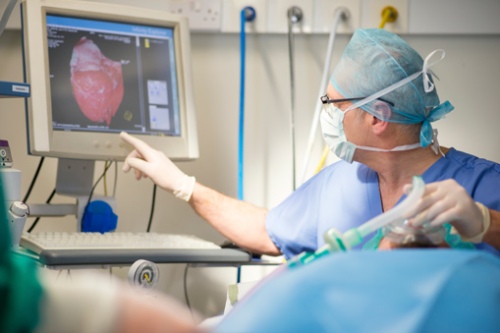 In the light of Monday’s first post in the new sequence about the heart, it’s obvious I couldn’t resist continuing sharing these reflections from the Bahá’í Teachings website by David Langness concerning the nature of the heart. I am intrigued but not entirely convinced by the phenomenon of ‘cellular memory,’ in the sense used here at least. For the full post see link.
In the light of Monday’s first post in the new sequence about the heart, it’s obvious I couldn’t resist continuing sharing these reflections from the Bahá’í Teachings website by David Langness concerning the nature of the heart. I am intrigued but not entirely convinced by the phenomenon of ‘cellular memory,’ in the sense used here at least. For the full post see link.
Know, verily, that the soul is a sign of God, a heavenly gem whose reality the most learned of men hath failed to grasp, and whose mystery no mind, however acute, can ever hope to unravel.
Baha’u’llah, Gleanings from the Writings of Baha’u’llah, pp. 158-159.
We know so much now, as a species. Humanity’s scientific knowledge grows exponentially every day. Technologically, we expand by leaps and bounds each week. The world, previously so unexplored and unknown, has now given up many of its secrets. We can cure the human body of disease in so many marvelous ways. The sum total of human knowledge doubled, Buckminster Fuller calculated, every hundred years in 1900; and every 25 years in 1945. By 2014, many different scientists estimated that the scope of our knowledge now doubles every year.
Last month surgeons took apart my wife’s heart and put it back together–reconstructed, re-vascularized and renewed. “Her rebuilt heart should last many more decades,” one of the doctors told us. Even a generation or two ago, that would have been completely impossible, even unthinkable, a miracle.
In a few years, researchers estimate, the life sciences will have the ability to grow new, replacement organs using your own DNA.
Today, though, we can only transplant hearts, not grow new ones. I first got interested in heart transplants when my uncle introduced me to the pioneering cardiac transplant surgeon Michael DeBakey at his hospital in Houston. I had the opportunity to talk to him about his work, see his lab and tour his surgical suites, and I’ve been fascinated by the scientific miracles of organ transplantation ever since. Dr. DeBakey also invented the very first version of the heart/lung pump that made my wife’s cardiac surgery possible, so I’ll always owe him a great debt of gratitude.
Although legendary scientists like Dr. DeBakey have contributed so much to human knowledge, they are usually the first to admit that what we still don’t know absolutely dwarfs the grand total of what we do know. My uncle told me the good doctor had a sign on his desk that said “All surgeons parade a slim knowledge in front of a massive ignorance.”
For example: while we can physically transplant a heart into a living person from a donor who has passed on to the next world; we don’t really fully know or understand what spiritual impact that transplant might have on the recipient—with only a few exceptions. The late Dr. Paul Pearsall conducted research into the memories of heart transplant patients, and came to believe in what he called “cellular memory,” the transference of some of the life experiences of the deceased heart donor to the recipient. In Dr. Pearsall’s book The Heart’s Code, he interviewed a large group of heart donor families, and then separately and confidentially spoke to the transplant recipients about this phenomena.